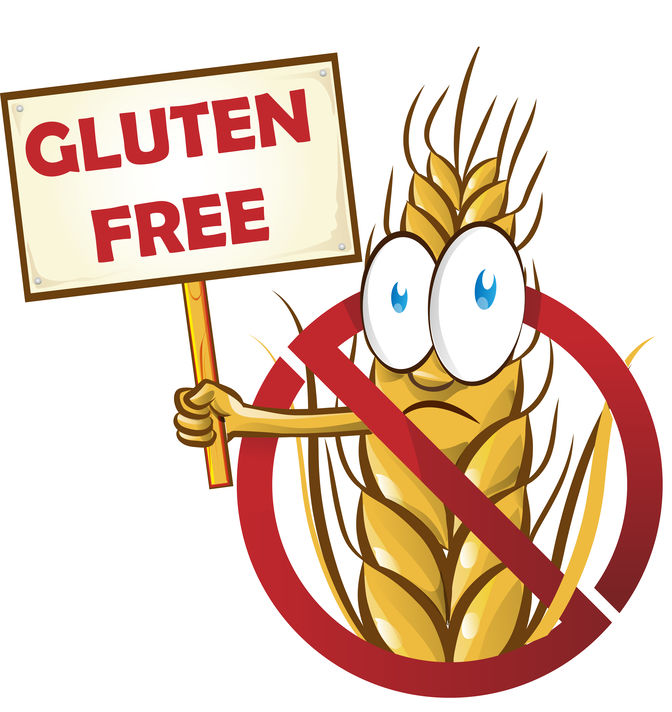Many people are trying out gluten-free diets these days. Some people are looking to lose weight, some want to have more energy, some are trying to resolve skin or digestive or allergic issues. There are many reasons to try a gluten-free way of eating. But is it working? At first, going gluten-free may indeed help someone feel better, at least for a while. However, replacing processed food with gluten in it, for processed food without gluten in it, is not a long-term solution for feeling your best.
A gluten-free diet is a specific diet for people who either have celiac disease, gluten sensitivity or an allergy. When people with celiac disease start a gluten-free diet, their digestion greatly improves over time, and they may lose weight, or their skin may clear up, and they may have more energy, or all of the above.
The popularity of the gluten-free diet has given rise to an industry of gluten-free, highly-processed convenience foods that contain added sugar and a plethora of nutrient-empty ingredients.
Many gluten-free products contain starchy replacement flours like tapioca starch, potato starch, and rice flour. Powdered starches from tapioca or potato are among the highest glycemic-index (GI) foods available today. High GI foods increase blood sugar rapidly, and lead to a blood-sugar “crash” leaving you feeling tired, edgy, irritable, and unable to focus. Eating high GI foods for a prolonged period of time triggers weight gain and can lead to insulin resistance, diabetes, arthritis and other chronic problems.
Besides weight gain and increased risk for several diseases, you may become nutrient deficient. Eating processed ingredients that have been stripped of vital nutrients (with maybe a few synthetic “nutrients” added back in) leaves your body devoid of the building blocks you need to feel great. Michael Pollan, author, calls these “edible food-like substances” because they are more a collection of chemicals than actual real food.
The important thing for anyone trying to maintain a healthy weight and a high energy level, is to eat whole, not-commercially-processed, organic foods. This is true for anyone eating gluten or not eating gluten.
Reading labels is important! Be cautious of the following ingredients whether they are in gluten-free foods or any other processed food-like substance:
Tapioca Starch – One of the main ingredients used to replace wheat flour is “tapioca starch”. A very high GI food, tapioca starch contains little to no fiber, fat, protein, vitamins or minerals, and basically just supplies empty calories that can spike blood sugar more than refined sugar does.
Rice Starch, Rice Flour & Brown Rice Syrup – Rice is very common in gluten-free diets. Processed rice in the form of starch, flour and syrup is another high-GI food devoid of nutrients, and is also notoriously contaminated with arsenic, which is a “potent human carcinogen” according to scientists at Consumer Reports and classified as a group 1 carcinogen by the International Agency for Research on Cancer.
Corn & Soy – Corn and soy ingredients (corn meal, corn starch, corn syrup, soybean oil, soy lecithin) are found in most processed foods. Any food-like products made from conventional corn or soy are likely GMO, because the vast majority of these crops in the U.S. are genetically modified. Roundup-Ready GMO crops are designed to be sprayed with the herbicide Roundup (glyphosate) and have been shown to accumulate glyphosate. This is a big deal because glyphosate has been deemed a “probable carcinogen” according to the International Agency for Research on Cancer, and also destroys our critical healthy gut bacteria, just like antibiotics do. Read more about the dangers of Glyphosate and how to avoid it HERE.
Refined Sugar – You might be surprised at how many food-like products contain sugar. Sugar has many different forms and names: corn syrup, fructose, disaccharides, maltodextrin, dextrin, sugar, erythritol, Florida crystals, fructooligosaccharides, galactose, glucitol, glucoamine, hexitol, inversol, isomalt, maltodextrin, malted barley, malts, mannitol, nectars, pentose, raisin syrup, ribose rice syrup, rice malt, rice syrup solids, sorbitol, sorghum, sucanat, sucanet, xylitol and zylose. That’s not a comprehensive list, just a sample of the names used to disguise the huge amounts of sugar on food labels. Some, like erythritol and sorbitol, are sugar alcohols and are very irritating to the gut. They are all high GI ingredients. Also beware that unless the ingredient label says “cane sugar” or the product is organic, the sugar is likely sourced from GMO sugar beets or GMO corn. See Corn & Soy above for one reason why GMOs are problematic.
Inflammatory Oils – Besides coming from GMOs, canola, soy, and cottonseed oils are rancid, bleached, highly-inflammatory ingredients that should be avoided at all costs. These oils increase the risk of inflammation, cardiovascular disease, cancer, and autoimmune diseases.read more about the dangers of so-called “vegetable” oils and truly healthy fats HERE.
Xanthan Gum –Many food-like substances contain the additive xanthan gum for texture and softness. This ingredient may not be carcinogenic, but is often derived from GMO corn and triggers allergies or gastrointestinal issues in many people.
This list is far from exhaustive, but it gives you a sense of the chemicals masquerading as food these days.
So what to do? Stop buying processed foods (gluten-free or not) that can sabotage your health and start eating healthy whole foods that nourish your body. To see a list of nutrient-dense foods to get you started, check out the post “To Cleanse or Not To Cleanse…” HERE.
